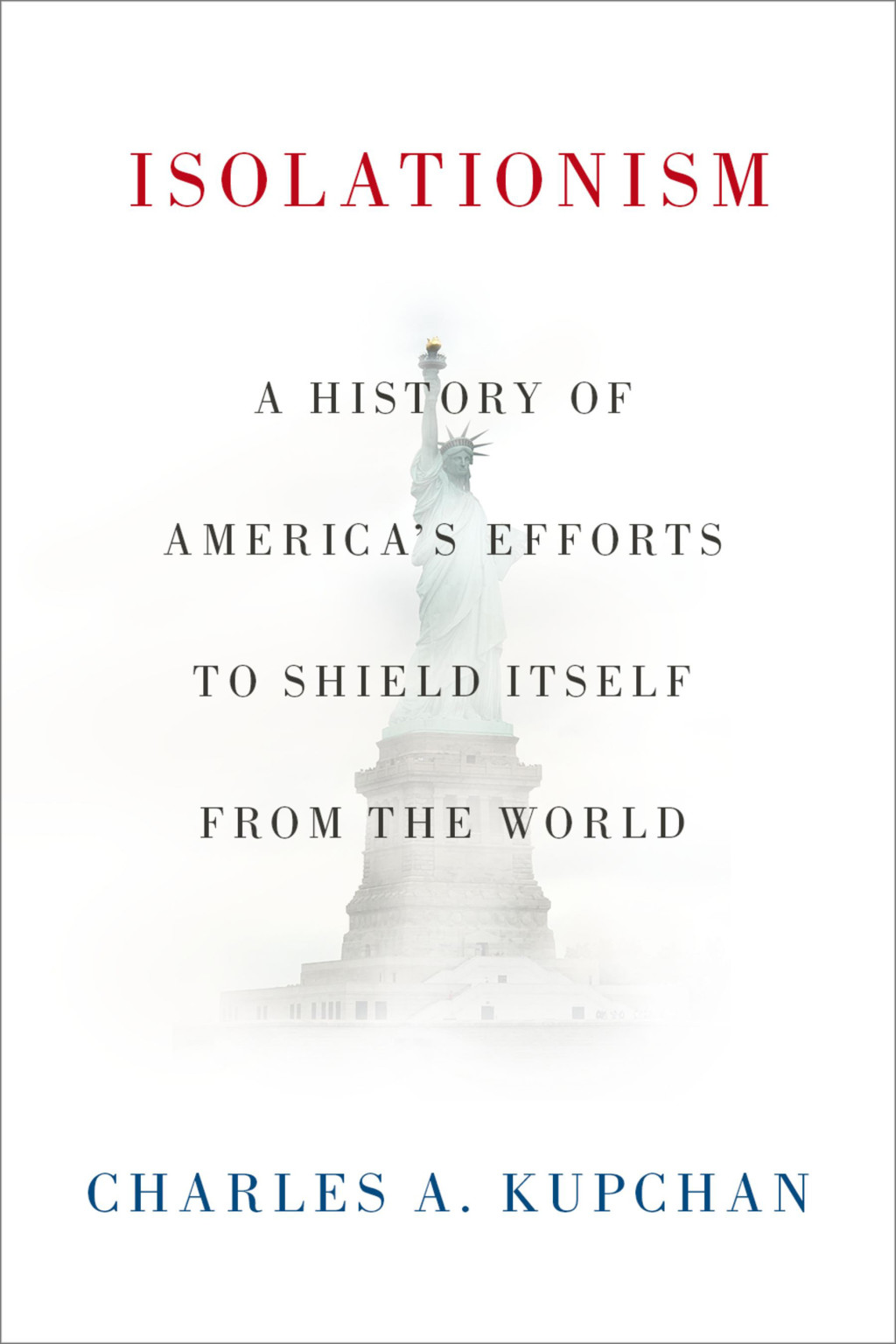Isolationism—New in Paperback
A History of America’s Efforts to Shield Itself From the World
Charles A. Kupchan mines the nation’s past to uncover the ideological and political roots of ongoing changes in U.S. foreign policy, including the sources of Donald J. Trump’s “America First” doctrine.

- Publisher
- Oxford University Press
- Release Date
- October 2020
- Pages
- 456
- ISBN
- 978-0-19-939302-2
In his Farewell Address of 1796, President George Washington admonished the young nation “to steer clear of permanent alliances with any portion of the foreign world.” Isolationism thereafter became one of the most influential political trends in American history. From the founding era until the Japanese attack on Pearl Harbor, the United States shunned strategic commitments abroad, making only brief detours during the Spanish-American War and World War I. Amid World War II and the Cold War, Americans abandoned isolationism; they tried to run the world rather than run away from it. But isolationism is making a comeback as Americans tire of foreign entanglement. In this definitive and magisterial analysis—the first book to tell the fascinating story of isolationism across the arc of American history—Charles Kupchan explores the enduring connection between the isolationist impulse and the American experience. He also refurbishes isolationism’s reputation, arguing that it constituted dangerous delusion during the 1930s, but afforded the nation clear strategic advantages during its ascent.
Kupchan traces isolationism’s staying power to the ideology of American exceptionalism. Strategic detachment from the outside world was to protect the nation’s unique experiment in liberty, which America would then share with others through the power of example. Since 1941, the United States has taken a much more interventionist approach to changing the world. But it has overreached, prompting Americans to rediscover the allure of nonentanglement and an America First foreign policy. The United States is hardly destined to return to isolationism, yet a strategic pullback is inevitable. Americans now need to find the middle ground between doing too much and doing too little.
Reviews and Endorsements
In this timely, judicious and thoughtful book, Charles Kupchan adds depth and dimension to our understanding of the United States’ foreign relations and the strategic choices now facing it. In tracing isolationism’s origins to the earliest days of the Republic and showing its iterations in successive generations, he reminds us of how powerful a force it has been—and remains. Essential reading both for those who are going to be in charge in the next years and for anyone who cares about the United States and the world.
Margaret MacMillan, Professor of History, University of Toronto and University of Oxford, and author of Paris 1919: Six Months that Changed the World
Comprehensive and objective, Kupchan’s Isolationism is a useful contribution to the history and contemporary understanding of American isolationism.
Henry Kissinger, former U.S. Secretary of State
Isolationism is a deeply researched, fascinating look at how an urge to keep the world at bay has largely defined the United States and its foreign policy since the country’s founding.
Foreign Policy
Isolationism is a carefully researched, clearly presented study of American foreign policy that demonstrates the enduring power of American skepticism about open-ended international commitments while making the case for continued American engagement. By grounding his policy arguments in a careful review of American history, Kupchan not only strengthens his case but sets an example which other policymakers would be wise to follow.
Walter Russell Mead, Distinguished Fellow in Strategy and Statesmanship, Hudson Institute; Professor of Foreign Affairs, Bard College; and Global View Columnist, Wall Street Journal
The battle for the future of America’s foreign policy rages all around us. This learned, wise, and deeply engaged history of U.S. isolationist impulses from the founding up to today is a much-needed book, and the selective commitments and judicious retrenchments it calls for are recipes for good policymaking.
Odd Arne Westad, Professor of History and Global Affairs, Yale University, and author of The Cold War: A World History
This is a significant book. Kupchan has produced the first comprehensive study of American isolationism. He is totally fair-minded and unfailingly insightful in telling the story of isolationism from its origins at the founding of the Republic down to its resurgence at the outset of this new century. This is a book that everyone who cares about the past and present of American foreign policy should read.
John M. Cooper, Professor Emeritus of History, University of Wisconsin-Madison
At a time when the way forward in U.S. foreign relations seems more uncertain than ever, Kupchan takes a timely, detailed, and unsparing look at the role of isolationism in the broad sweep of U.S. history. The general reader, scholar, and policymaker can all profit from this compelling account.
Mary E. Sarotte, Marie-Josée and Henry R. Kravis Distinguished Professor of Historical Studies, Johns Hopkins School of Advanced International Studies (SAIS), and author of The Collapse: The Accidental Opening of the Berlin Wall
At a time when many are urging America to retreat internationally, Kupchan’s illuminating history of U.S. foreign policy reminds us of isolationism’s pitfalls as well as its continuing allure. Scholars and policymakers alike will benefit from this book’s trenchant analysis of America’s past and wise counsel about how to forge a more balanced, realistic, and enduring foreign policy going forward.
Peter Trubowitz, Professor of International Relations, London School of Economics and Political Science
Charles Kupchan reminds us that a globally assertive foreign policy is more the exception than the norm in American history. Even those who do not fully agree with his arguments will find this book sharply argued, provocative, and engaging.
Hal Brands, Henry A. Kissinger Distinguished Professor of Global Affairs, SAIS
Astute political history.
Kirkus Reviews
Kupchan . . . offers an erudite and evenhanded study of the isolationist impulse in American foreign policy. . . . Policy makers and foreign affairs scholars will want to take note.
Publishers Weekly
Isolationism arrives at a prescient moment as Biden stands to unstitch Trump’s ‘America First’ handiwork.
Financial Times